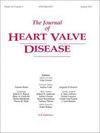求助PDF
{"title":"机械心脏瓣膜患者华法林依从性对治疗范围时间的影响。","authors":"Demet Ozkaramanli Gur, Derya Baykız, Aydin Akyuz, Seref Alpsoy, Cigdem Fidan","doi":"","DOIUrl":null,"url":null,"abstract":"<p><strong>Background: </strong>Despite considerations of its therapeutic range and multiple drug-food interactions, warfarin is the mainstay of oral anticoagulation in patients with mechanical heart valves (MHVs). The quality of anticoagulation demonstrates variations, with 'time in therapeutic range' (TTR) values usually lower than expected. It has been hypothesized that warfarin adherence is among the modifiable causes of suboptimal coagulation. The aim of the study was to demonstrate the ability of the 8-Item Morisky Medication Adherence Scale (MMAS-8©) to identify patients with non-adherence to warfarin, and to define the predictors of optimal coagulation when a TTR value ≥65% is used as the surrogate.</p><p><strong>Methods: </strong>In a cross-sectional survey of 112 patients, TTR6 months and TTR12 months were calculated using the Rosendaal method. A questionnaire was used to assess the patients' warfarin knowledge, bleeding complications, and adherence. Patients were categorized into low-adherence (LA), moderate adherence (MA) and high-adherence (HA) groups based on MMAS-8 values. The target INR was 2.5-3.5, and an effective TTR was defined as ≥65%.</p><p><strong>Results: </strong>TTR6 months, TTR12 months and warfarin knowledge were significantly lower in the LA group than in the MA and HA groups. In addition, the bleeding score of HA patients was significantly lower than that of LA and MA patients. The MMAS-8 was the single independent predictor of effective TTR for six and 12 months on multivariate regression analysis (B = 0.506, p <0.001 and B = 0.469, p <0.001, respectively).</p><p><strong>Conclusions: </strong>Warfarin adherence accounted for poor TTR values in patients with MHV, and MMAS-8 was used effectively to identify those expected to have a low TTR, to suffer more complications, and to require robust education.</p>","PeriodicalId":50184,"journal":{"name":"Journal of Heart Valve Disease","volume":"27 1","pages":"55-64"},"PeriodicalIF":0.0000,"publicationDate":"2018-01-01","publicationTypes":"Journal Article","fieldsOfStudy":null,"isOpenAccess":false,"openAccessPdf":"","citationCount":"0","resultStr":"{\"title\":\"The Influence of Warfarin Adherence on Time in Therapeutic Range Among Patients with Mechanical Heart Valves.\",\"authors\":\"Demet Ozkaramanli Gur, Derya Baykız, Aydin Akyuz, Seref Alpsoy, Cigdem Fidan\",\"doi\":\"\",\"DOIUrl\":null,\"url\":null,\"abstract\":\"<p><strong>Background: </strong>Despite considerations of its therapeutic range and multiple drug-food interactions, warfarin is the mainstay of oral anticoagulation in patients with mechanical heart valves (MHVs). The quality of anticoagulation demonstrates variations, with 'time in therapeutic range' (TTR) values usually lower than expected. It has been hypothesized that warfarin adherence is among the modifiable causes of suboptimal coagulation. The aim of the study was to demonstrate the ability of the 8-Item Morisky Medication Adherence Scale (MMAS-8©) to identify patients with non-adherence to warfarin, and to define the predictors of optimal coagulation when a TTR value ≥65% is used as the surrogate.</p><p><strong>Methods: </strong>In a cross-sectional survey of 112 patients, TTR6 months and TTR12 months were calculated using the Rosendaal method. A questionnaire was used to assess the patients' warfarin knowledge, bleeding complications, and adherence. Patients were categorized into low-adherence (LA), moderate adherence (MA) and high-adherence (HA) groups based on MMAS-8 values. The target INR was 2.5-3.5, and an effective TTR was defined as ≥65%.</p><p><strong>Results: </strong>TTR6 months, TTR12 months and warfarin knowledge were significantly lower in the LA group than in the MA and HA groups. In addition, the bleeding score of HA patients was significantly lower than that of LA and MA patients. The MMAS-8 was the single independent predictor of effective TTR for six and 12 months on multivariate regression analysis (B = 0.506, p <0.001 and B = 0.469, p <0.001, respectively).</p><p><strong>Conclusions: </strong>Warfarin adherence accounted for poor TTR values in patients with MHV, and MMAS-8 was used effectively to identify those expected to have a low TTR, to suffer more complications, and to require robust education.</p>\",\"PeriodicalId\":50184,\"journal\":{\"name\":\"Journal of Heart Valve Disease\",\"volume\":\"27 1\",\"pages\":\"55-64\"},\"PeriodicalIF\":0.0000,\"publicationDate\":\"2018-01-01\",\"publicationTypes\":\"Journal Article\",\"fieldsOfStudy\":null,\"isOpenAccess\":false,\"openAccessPdf\":\"\",\"citationCount\":\"0\",\"resultStr\":null,\"platform\":\"Semanticscholar\",\"paperid\":null,\"PeriodicalName\":\"Journal of Heart Valve Disease\",\"FirstCategoryId\":\"1085\",\"ListUrlMain\":\"\",\"RegionNum\":0,\"RegionCategory\":null,\"ArticlePicture\":[],\"TitleCN\":null,\"AbstractTextCN\":null,\"PMCID\":null,\"EPubDate\":\"\",\"PubModel\":\"\",\"JCR\":\"Q3\",\"JCRName\":\"Medicine\",\"Score\":null,\"Total\":0}","platform":"Semanticscholar","paperid":null,"PeriodicalName":"Journal of Heart Valve Disease","FirstCategoryId":"1085","ListUrlMain":"","RegionNum":0,"RegionCategory":null,"ArticlePicture":[],"TitleCN":null,"AbstractTextCN":null,"PMCID":null,"EPubDate":"","PubModel":"","JCR":"Q3","JCRName":"Medicine","Score":null,"Total":0}
引用次数: 0
引用
批量引用
The Influence of Warfarin Adherence on Time in Therapeutic Range Among Patients with Mechanical Heart Valves.
Background: Despite considerations of its therapeutic range and multiple drug-food interactions, warfarin is the mainstay of oral anticoagulation in patients with mechanical heart valves (MHVs). The quality of anticoagulation demonstrates variations, with 'time in therapeutic range' (TTR) values usually lower than expected. It has been hypothesized that warfarin adherence is among the modifiable causes of suboptimal coagulation. The aim of the study was to demonstrate the ability of the 8-Item Morisky Medication Adherence Scale (MMAS-8©) to identify patients with non-adherence to warfarin, and to define the predictors of optimal coagulation when a TTR value ≥65% is used as the surrogate.
Methods: In a cross-sectional survey of 112 patients, TTR6 months and TTR12 months were calculated using the Rosendaal method. A questionnaire was used to assess the patients' warfarin knowledge, bleeding complications, and adherence. Patients were categorized into low-adherence (LA), moderate adherence (MA) and high-adherence (HA) groups based on MMAS-8 values. The target INR was 2.5-3.5, and an effective TTR was defined as ≥65%.
Results: TTR6 months, TTR12 months and warfarin knowledge were significantly lower in the LA group than in the MA and HA groups. In addition, the bleeding score of HA patients was significantly lower than that of LA and MA patients. The MMAS-8 was the single independent predictor of effective TTR for six and 12 months on multivariate regression analysis (B = 0.506, p <0.001 and B = 0.469, p <0.001, respectively).
Conclusions: Warfarin adherence accounted for poor TTR values in patients with MHV, and MMAS-8 was used effectively to identify those expected to have a low TTR, to suffer more complications, and to require robust education.

 求助内容:
求助内容: 应助结果提醒方式:
应助结果提醒方式:


